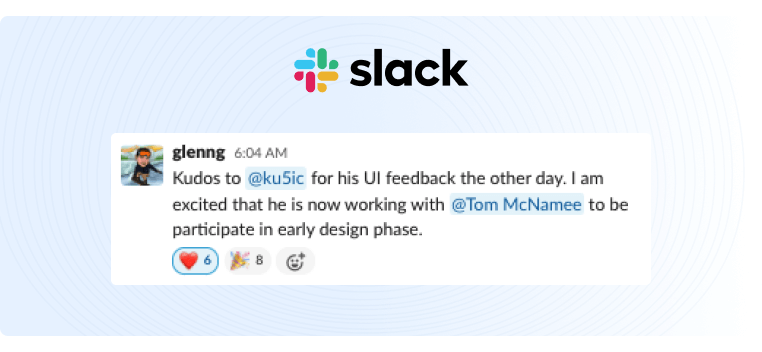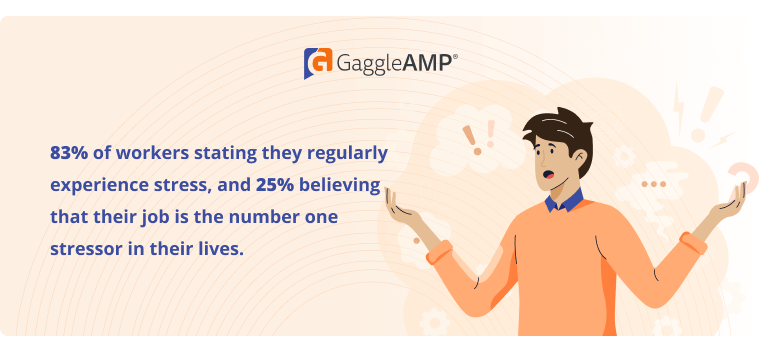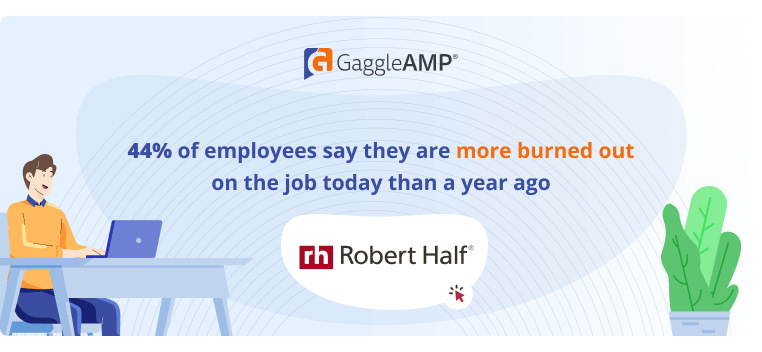The Relationship Between Employee Mental Health and Engagement
Strong employee engagement is a workplace initiative that many organizations aim to achieve. Their focus on it is typically for productivity purposes and reducing employee turnover. But what about employee mental health and wellbeing? A powerful employee engagement strategy incorporates a balance between workplace initiatives and mental health and wellness but achieves outcomes like a reduction in staff turnover.
Studies suggest that employee engagement plays a key role in workplace mental health. By placing an effort towards boosting productivity and getting more out of the staff, companies could be overlooking the mental health of employees. The World Health Organization (WHO) suggests that the global economy loses over $1 trillion annually in lost or low productivity caused by poor mental health in the workplace. Keeping employees engaged and happy is essential not only for individuals but for businesses, too.
The Connection Between Mental Health and the Workplace
We spend a lot of our lives in the workplace, so it’s unsurprising that the environment we work in can have a significant impact on our emotions and our well-being. Research suggests that workplace stress is on the rise, with 83% of workers stating they regularly experience stress, and 25% believing that their job is the number one stressor in their lives.
The impact of workplace stress is vast, with links to higher rates of absenteeism, lower productivity and morale, and an increased risk of burnout among employees. But it’s not just stress that employers need to be mindful of.
A lack of communication between employers and employees, excessive workloads, and a lack of training and development breeds an unhealthy workplace culture. This can all contribute to a dip in engagement and an increased risk of mental health issues such as depression and anxiety. For the company, it can result in lower employee retention rates, loss of brand reputation, and can even drive down overall profits due to absences and low productivity.
How Supporting Mental Health Can Boost Employee Engagement
Stress, depression, anxiety, and burnout…they’re all mental health issues that can reduce productivity and cause employees to disengage from their work. But employees that feel supported, valued, and motivated are more inclined to do their best work and strive for more in their careers. It can be a positive boost to their mental health and confidence when they feel as though they’re being acknowledged for their contributions and that they’re part of a team.

A company that doesn’t offer flexibility, progression, or benefits for its employees is at risk of staff losing interest in their work. Over time, it produces low morale or subsequent mental health problems and eventually results in the employee leaving the company altogether.
Employees deserve to feel safe and supported in their jobs, and businesses have a responsibility to provide a culture of growth and opportunity in order to maintain a psychologically healthy workplace.
This means providing an environment where people can:
- Be their authentic selves
- Speak up when they have ideas or opinions
- Feel able to try new things
- Make mistakes without judgment or embarrassment
Ultimately, when businesses create a culture of motivated, valued, and engaged employees, everyone wins. Businesses profit and are more likely to attract top talent. Employees are more likely to speak of their supportive work environments which builds brand awareness. And everyone heads to work each day excited to see where their contributions aid the company that day.
How to Champion Engagement Through Employee Mental Health
There are steps businesses can take to create a healthy workplace, and keep employees engaged and motivated to do their best, all while supporting their employees' mental health. Here are a few ways that companies can champion engagement and support their employees' mental health at the same time.
Encourage a Healthier Work-Life Balance
A healthy work-life balance is essential for positive mental health and it contributes to improved productivity and engagement. When an employee is overworked, tired, or overwhelmed, they’re at an increased risk of becoming disengaged and taking more days off due to illness or stress.
Employees should be empowered to set boundaries when it comes to switching off from work and be able to speak up if they feel their workload is getting out of hand. This might mean putting flexible working options in place, adopting a hybrid way of working, or simply working closely with employees to ensure that expectations and workloads are kept reasonable.
Show Employees They’re Valued
Valued and appreciated employees are happy and motivated, so invest in your employees and they’ll be much more engaged and willing to work hard. Positive reinforcement is something that so many businesses neglect, but it’s one of the easiest ways to develop employee mental health.

Celebrate wins in the team, acknowledge when an employee has gone the extra mile on a project, and encourage a culture of praise when someone makes a meaningful contribution to the business. When employees are rewarded for their efforts, they feel valued. Consider ways that you can give back to the team beyond their salaries, such as wellness perks, company-wide closures, access to discounted gym memberships or mental health apps, and other employee engagement strategies.
Build Trust
Trust is critical to driving engagement. Your employees need to feel safe and comfortable at work, particularly where mental health is concerned, and that starts with training leaders on the impact of micromanaging.
Make sure that your employees have the tools they need to work independently. Encourage autonomy and networking in your business. Having a balance between empowerment to do your job as you see fit and the foundation of a social network to bounce ideas off of builds trust and independence.
Create a Culture of Development
Feelings of stagnation in your career can take their toll on an employee's mental health. Create an environment where they are challenged but learning. Make it clear it’s okay to make mistakes — we all need to make them know what not to do. And managers, give grace.
Make sure your employees know what they are working towards. Speak to employees on an individual basis about what they want to achieve in their role and where they see their careers progressing. Create a growth plan together and review your progress often. When employees are working towards goals, they’re motivated and reinvigorated to do more, which is a confidence booster and shows they’re worthy of investment from the business. This all helps drive a culture of trust.
Employee Mental Health Final Thoughts
44% of employees say they are more burned out on the job today than a year ago. The health and well-being of your employees is vital to a successful business, yet it’s something that can be easily overlooked by leaders and business owners.
If employee engagement is something you only think of in terms of how it benefits the business, take a step back and look at the bigger picture — by prioritizing engagement from the perspective of the employee, both the business and employees benefit, creating a happier and healthier place to work for all.












